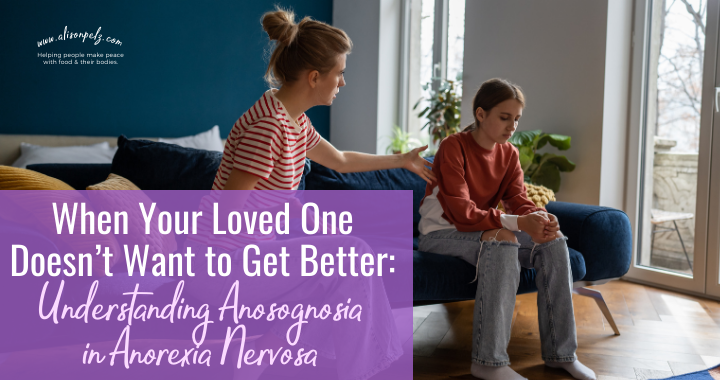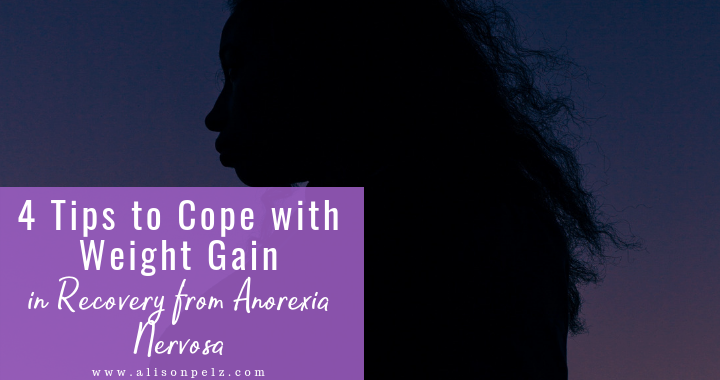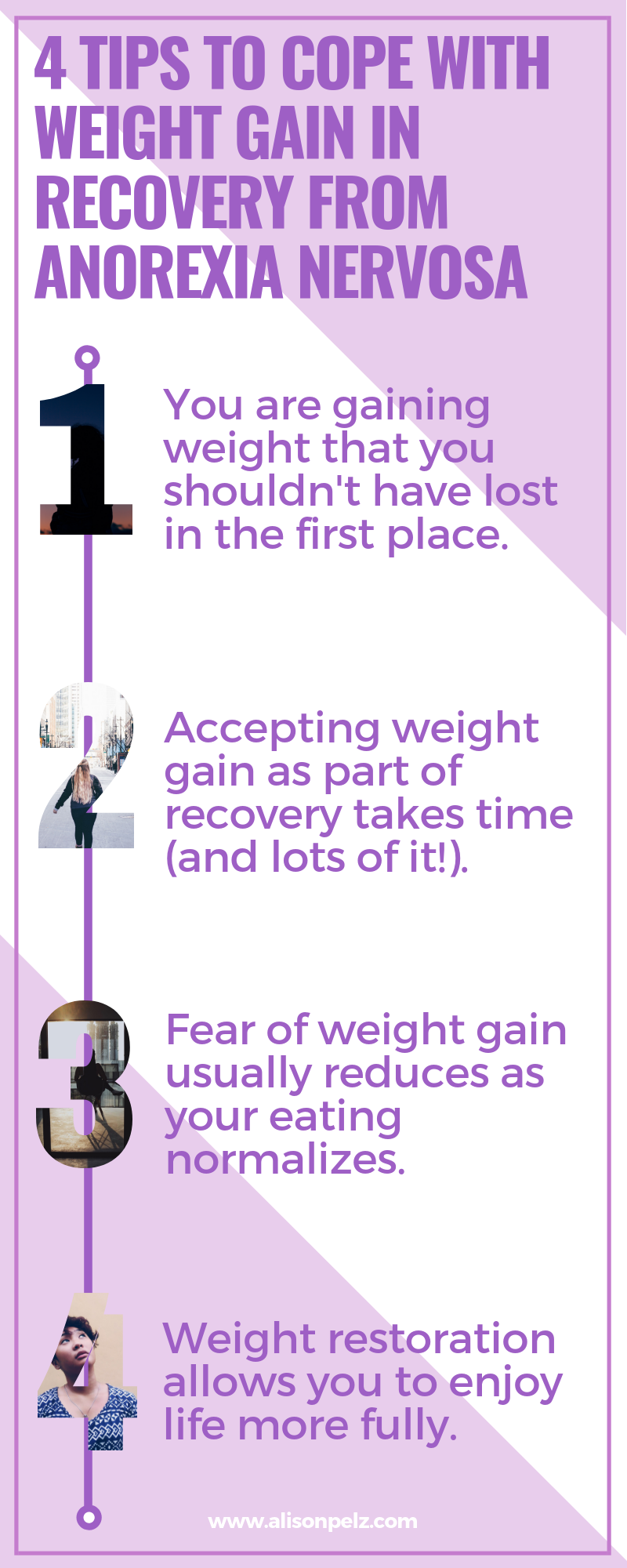Anorexia nervosa is an eating disorder characterized by severe food restriction, an intense fear of weight gain, and body image disturbance. Anorexia nervosa affects many individuals of all genders, ages, and identities worldwide.
The consequences of anorexia nervosa can be devastating, both physically and psychologically. However, one of the most challenging aspects of this disorder, particularly for family members and caregivers (and even clinicians!), is the phenomenon known as anosognosia.
What is Anosognosia?
Anosognosia, stemming from the Greek words “nosos” (disease) and “gnosis” (knowledge), refers to a lack of awareness of one’s illness. Anosognosia often can feel and look like denial.
Denial is a defense mechanism and psychological response to avoid dealing with anxiety or other uncomfortable feelings. In contrast, anosognosia in mental health conditions is better described as a lack of awareness of their own condition.
Anosognosia can affect individuals struggling with bipolar, schizophrenia, eating disorders, and other psychological disorders.
In anorexia nervosa, individuals may minimize the severity of their condition. They may adamantly believe they are not sick, or that their behaviors are justified, making it incredibly difficult for them to recognize the need for treatment. It can feel like your loved one is being “difficult” and in teenagers it can be especially confusing because during adolescence it is normal for teens to be contrary or contradictory.
Anosognosia causes a person to be unable to achieve one or more of the following:
- Accept that they have an illness or disorder.
- See the signs and symptoms of their condition.
- Connect their feelings and personal experiences back to that condition.
- Understand and agree that the condition is serious and needs treatment.
One of the most dangerous aspects of anosognosia in anorexia nervosa is the individual struggling with insight when the condition becomes life-threatening.
This lack of awareness around a loved one’s illness can further complicate the treatment plan and, many times, prevent treatment from occurring altogether.
Parents frequently ask me if they should wait for their child to want to recover.
My answer is always no, because I know that anosognosia is most likely operating, and because the devastating effects eating disorders have.
Let’s face it – no teen really wants the devastating effects of an eating disorder. Contrary to popular belief, no one chooses to have an eating disorder.
How Anosognosia May be Affecting You
It’s already difficult enough to observe as a family member or loved one suffers from Anorexia nervosa, but anosognosia can make it incredibly distressing and frustrating. Despite your pleas, watching as your loved one deteriorates physically and emotionally, while they remain unaware of the severity of their condition, can evoke feelings of helplessness and despair.
To best help your loved one, you must recognize that anosognosia is not a choice but rather a symptom of the disorder.
It is deeply rooted in neurological and psychological mechanisms impairing the individual’s ability to perceive reality accurately. This is completely out of their control, and without professional help,they may be unable to leave behind their problematic and highly dangerous behaviors.
The Role of Brain Connection in Anosognosia
Research suggests that anosognosia in anorexia nervosa may have an anatomical basis.
Brain imaging studies indicate abnormalities in brain structure and function. According to a study published in the European Eating Disorder Review, up to 80% of individuals with anorexia exhibit some degree of anosognosia.
Malnutrition, a hallmark of anorexia, can lead to significant changes in brain chemistry and structure. This potentially contributes to the development of anosognosia. These neurological alterations can impair the individual’s ability to recognize their illness and hinder their motivation to seek help. This perpetuates the cycle of disordered eating behaviors.
The good news is with nutrition rehabilitation, anosognosia diminishes.
Navigating Treatment and Recovery
Supporting a loved one with anorexia nervosa requires patience, empathy, and a comprehensive understanding of the disorder. Here are some ways you can help your loved one on their journey to recovery:
Show Compassion and Understanding
When you are speaking to your loved one about their eating disorder, it’s important to approach the conversation with compassion. You want to validate their experiences and avoid judgments, criticism, and shaming.
Encourage Professional Help
Although it may be difficult for someone with an eating disorder to want to receive treatment, it is still important for you to encourage it. Most success is found in early intervention. When the illness is treated, early on, there are often better outcomes than for those struggling without help for years.
Educate Yourself
One of the best things you can do to support your loved one if they are struggling with anorexia and/or anosognosia is to educate yourself on the facts. This should include the common signs and symptoms, possible treatment options, and debunked myths. This information is powerful in helping you better advocate for your loved one and their well-being. (link to www.feast-ed.org)
Foster Open Communication
Create a safe and supportive environment where your loved one feels comfortable discussing their thoughts and feelings. Encourage open communication and active listening, allowing them to express themselves without fear of judgment or criticism.
Practice Self-Care
Supporting a loved one with an eating disorder can be emotionally and physically draining. Take care of yourself and prioritize your own well-being, seeking support from friends, family, or mental health professionals if needed.
Be Aware of Triggers
One of the most important things to keep in mind is that even those deep into recovery can and will experience triggers. You can avoid adding to these by educating yourself on avoiding phrases and conversations, such as calorie counts or weight loss.
Expert Eating Disorder Treatment
If you think that a family member, child, or friend of yours is struggling with an eating disorder, it is important to consult a professional. With proper treatment, individuals can overcome their eating disorder and live a healthier life, both physically and mentally.
I am Alison Pelz, a psychotherapist and registered dietitian with over 16 years of experience. I specialize in treating eating disorders in Austin, TX.
If you or someone you care about is struggling with an eating disorder, don’t hesitate to reach out for help. To learn more about expert eating disorder treatment and schedule a consultation with me today. I am here to help you and your loved ones reclaim their lives and break through the chains of disordered eating.
Are you a clinician? Sign up for my mailing list and CE course!
Sources:
- Impaired Awareness and Anosognosia in Mentally Ill: Study Summaries (Mental Illness Policy Org)
- Anosognosia Condition and Anorexia (verywellmind.com)
- European Eating Disorders Review | Eating Disorders Journal (Wiley Online Library)



